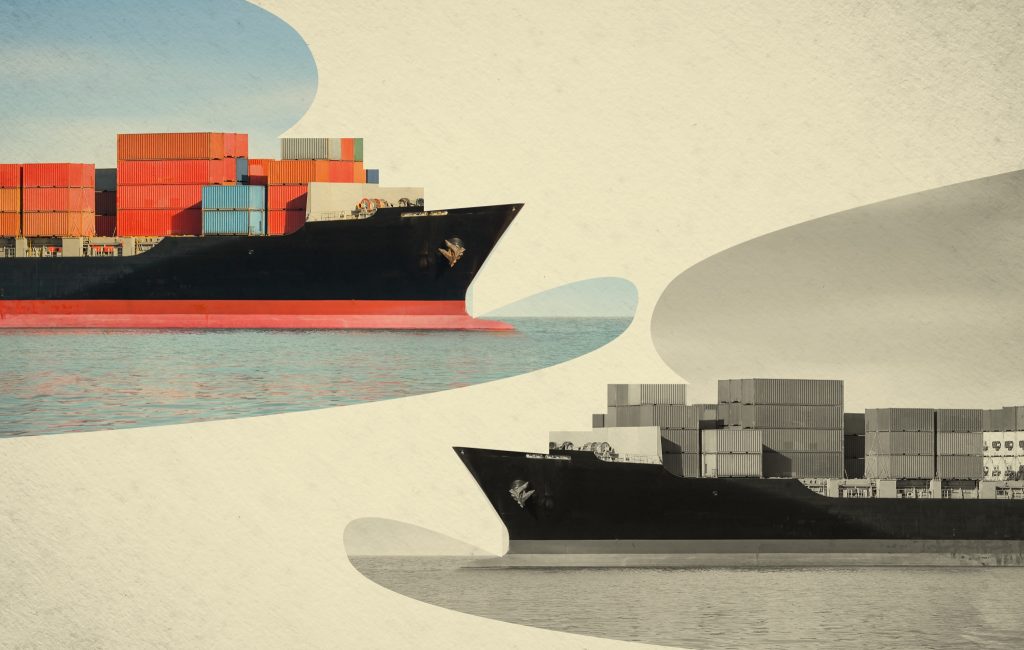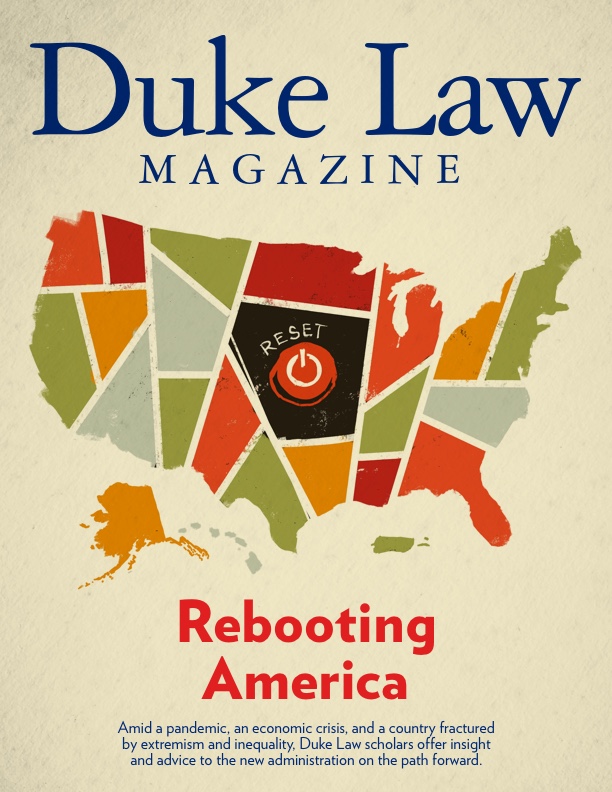
International trade | Rachel Brewster
Repair multilateral coalition essential to addressing challenges with China

President Biden has stated that trade is not at the top of his agenda, but there are three major issues that he has inherited from the Trump administration: tariffs on China, national security tariffs on steel, and the impasse at the World Trade Organization (WTO) Appellate Body. These issues are interconnected and likely to be major U.S. foreign policy concerns sooner rather than later.
The early signs are that the U.S. will seek a more multilateral approach to confronting China. A more united front is likely to produce more results but requires more coalition-building with our traditional allies.
The biggest issue for the Biden trade team will be whether to continue the Trump administration’s trade policy towards China. Over the last four years, the U.S. has imposed hundreds of billions of dollars in tariffs on Chinese goods, and the Chinese have responded with similar measures. In spite of all of the economic firepower, this approach has yielded few results in terms of changing Chinese trade policy. In January 2020, the U.S. and China reached a “Phase One” agreement which largely involves a promise by the Chinese government to buy a certain level of U.S. goods, but does not address the long-standing U.S. concerns with Chinese subsidies to state-owned enterprises.
Biden’s trade team will have to decide what its goals are for addressing China’s economic policy. The early signs are that the U.S. will seek a more multilateral approach to confronting China, pulling in economies including the European Union, the United Kingdom, and Japan. A more united front is likely to produce more results but requires more coalition-building with our traditional allies. Biden’s Secretary of State, Antony Blinken, is known to prefer a more multilateral approach, and this will most likely the be the preferred strategy for Biden’s nominee for U.S. Trade Representative (USTR), Katherine Tai.
Part of that coalition-building will requires resolving the other two major issues. First, there are the national security tariffs that the last administration put on steel and aluminum that largely targeted European and other non-Chinese steel producers. Because there are already so many countervailing duties on Chinese steel, the national security tariffs didn’t end up hitting China at all. The European Union views these tariffs as outrageous and unrelated to any national security concern (a view that even the Trump administration’s Department of Defense shared). To re-establish good relations with our traditional allies, the Biden administration will have to reel these in, but that might be domestically unpopular. My bet is that the new administration will try to replace these tariffs with a focus on buying American steel for domestic infrastructure projects.
Second, the Biden team will need to resolve the impasse involving the world trade court. The Trump administration put a hold on approving any judges to the WTO’s Appellate Body. This policy led to crisis because there are now an insufficient number of judges to hear cases. The Appellate Body is now suspended, preventing the final adjudication of cases involving any WTO member state, not just cases involving the U.S. The WTO Appellate Body is critical to maintaining the rule of law in international trade and preventing disputes from spiraling into mutually destructive trade wars.
Allies will put a lot of pressure on the Biden administration to agree to the appointment of judges to the WTO Appellate Body and, thereby restore a meaningful WTO adjudication system. The D.C. Bar has had a number of longstanding complaints about the Appellate Body, most of them having to do with anti-dumping and countervailing duty laws. As a result, the Biden administration might undertake some bargaining over minor reforms before new Appellate Body members are appointed. I anticipate that new appointments will be made by the end of the year, although the timeline is uncertain.
In early February, the Biden administration joined 160 WTO member nations in supporting Dr. Ngozi Okonjo-Iweala of Nigeria as its new director general, a selection that had been blocked by the Trump administration’s USTR, Robert Lighthizer. This move stands as a significant symbol of our willingness to compromise to build more multilateral solutions to common concerns on this and other international economic law issues.

